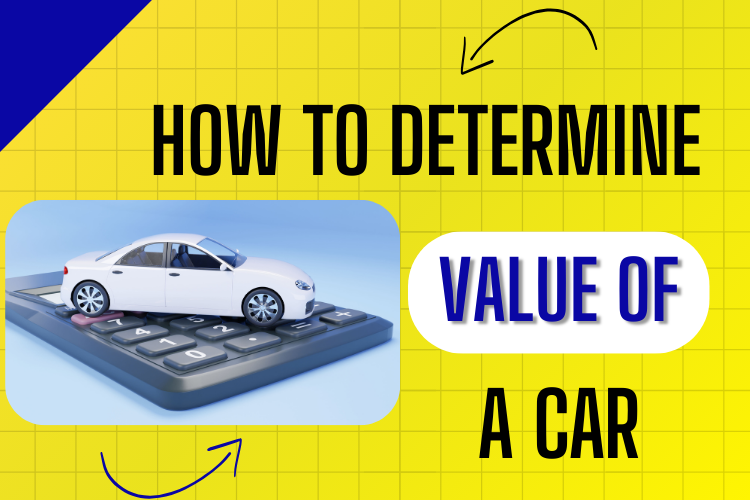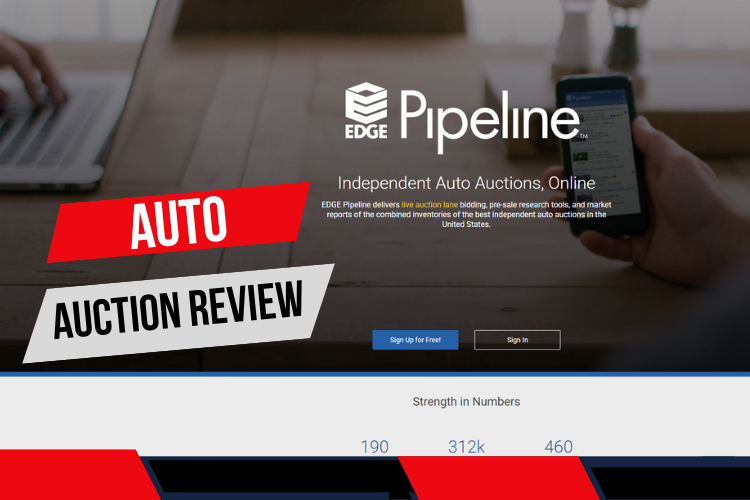Determining the value of your car can feel confusing, especially when online tools, dealership offers, and private-party prices rarely match. Yet it is important that you know your car’s worth. This information matters whether you are selling, trading in, refinancing, or shipping your vehicle to a new state.
In the last few years, the used-car market has shifted dramatically. Sales surged in 2021, and by 2022 the average price of a used car had jumped to record highs. A mix of factors contributed to this longer vehicle lifespans, rising demand, and even the 2021 semiconductor shortage that left dealerships with fewer new cars on the lot.
While choosing between a new or preowned vehicle is always a big part of car shopping, it’s only one piece of the puzzle. Buyers also have to think about safety features, fuel efficiency, long-term maintenance costs, and whether a used-car warranty is worth adding to the deal. Below, we will walk you through the factors, steps, and tools that help you get a reliable car worth estimating, along with tips to increase your car’s value before listing it for sale.
Key Takeaways
- Your car’s value depends on a mix of mileage, condition, market demand, and model-specific reputation.
- The most accurate valuation comes from comparing multiple sources like Kelley Blue Book, Edmunds, and local listings.
- Factors such as maintenance history, accident records, and upgrades directly influence resale value.
- Sherpa Auto Transport’s guides help you evaluate pricing, compare online marketplaces, and understand how buying or selling varies by state.
In This Guide:
- What Is the Resale Value of a Car?
- How to Calculate the Resale Value of a Car
- Factors That Affect a Vehicle’s Resale Value
- How to Improve the Value of a Car
- Bottom Line
- Car Worth Estimate FAQ
What Is the Resale Value of a Car?
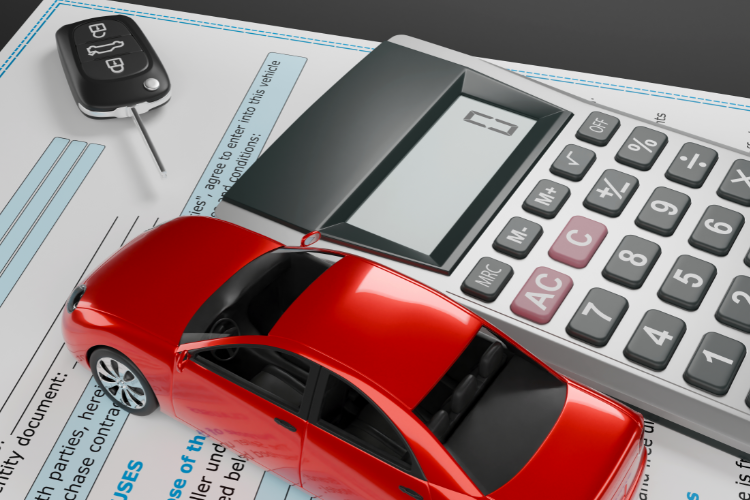
A car’s resale value is the amount that you can realistically expect to sell it for in today’s market. This number reflects what buyers are currently willing to pay for your vehicle and not just what online calculators suggest. Resale value is influenced by several core elements that includes vehicle condition (mechanical and cosmetic), mileage, age and model reputation along with market demand of the vehicle in your region. Moreover, the vehicle history including accidents, maintenance and ownership is also considered when calculating the resale value of the car.
If you are trying to figure out how to find the value of your car before selling or trading it in, understanding market trends and condition-based pricing is essential. Sources like Kelley Blue Book, Edmunds, and Consumer Reports often publish data on how different models retain value over time. This helps you understand where your vehicle stands in the current market.
How to Calculate the Resale Value of a Car
Determining the value of your car takes a little research, but once you get the hang of it, you can easily break it into steps. The best approach uses a mix of official valuation tools, real-world listings, and vehicle-specific information.
Gather Relevant Information
Start by collecting all the details that influence your car’s value, including:
- Make, model, and year
- Trim level and optional features
- Mileage
- Accident and repair history
- Maintenance records
- Vehicle Identification Number (VIN)
- Current cosmetic and mechanical condition
- Any aftermarket modifications
It is important to note that providing accurate details will lead to a reliable car worth estimate.
Consult Car Valuation Resources and Tools
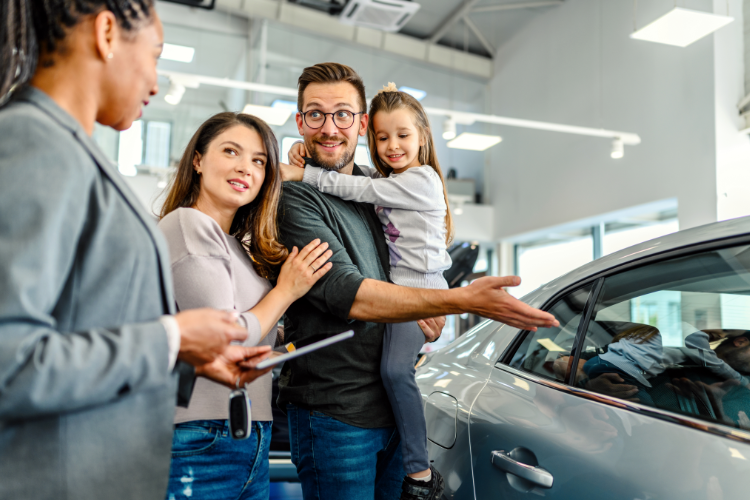
You can use multiple valuation resources to get a balanced picture. For instance:
- Kelley Blue Book (KBB) is one of the most widely used valuation tools.
- Edmunds True Market Value offers realistic local averages.
- NADA Guides are trusted by banks and dealerships.
- J.D. Power resale data shows model-specific long-term value.
- Consumer Reports that publish reliability ratings that impact price.
Most drivers start with online valuation tools, but the most accurate estimate comes from combining multiple data sources. Each source uses slightly different data sets and assumptions, so if you compare them, it will help you land on a fair range.
Research the Market
When you put yourself out in the market to determine the value of your car, look up real listings to see what similar cars are selling for in your area. For instance, you can check local dealerships’ used-car listings and browse private-party ads on marketplaces. You can also compare prices on used car sites. It is important that you pay attention to condition, mileage, and region as these factors can create big price differences.
Evaluate Supply and Demand
Some models hold value because they are in high demand. For example, fuel-efficient sedans are in demand during high-gas-price periods, while others depreciate faster. To evaluate the supply and demand of cars, you need to keep track of seasonal trends such as trucks and SUVs that sell better in winter in some states. Also there are some local preferences, convertibles usually sell for more in warm climates. Lastly, always make comparisons of dealer vs. private-market pricing trends.
Adjust for Your Car’s Condition
Once you gather the average market value, adjust it based on what’s unique about your car. This includes recent repairs, new tyres, cosmetic blemishes, interior wear and aftermarket mods which may reduce value in many cases. This final step gives you a realistic, personalized estimate.
Factors That Affect a Vehicle’s Resale Value

A vehicle’s resale value is rarely tied to just one thing. Most cars depreciate every year, but some hold their value much better due to reliability, popularity, and long-term ownership costs. Here are the factors that make the biggest difference:
Make and Model
Some car brands simply retain value better. Toyota, Honda, and certain Ford trucks consistently score high in reliability studies from Consumer Reports and J.D. Power, which strengthens their resale value. Vehicles with strong reliability ratings cost less to maintain over time and typically remain in demand in the used-car market, which boosts resale value. Even within the same brand, specific trims or engines may hold value better based on their performance, fuel efficiency, or popularity.
Year
Newer cars usually command higher prices because they have seen less use, feature more modern technology, and often come with remaining warranty coverage. It’s also important to remember that depreciation hits hardest in the first three years. Some models can lose a significant portion of their value within that period.
After that initial drop, depreciation tends to level out, and the car’s resale value depends much more on how well it’s been cared for. Strong maintenance records, a clean ownership history, and a reputation for reliability can help older vehicles maintain higher prices.
Mileage

Mileage is one of the first details buyers look at. Lower mileage typically increases resale value because it suggests the car has undergone less wear and tear. High-mileage vehicles often sell for less simply because buyers expect more future repairs. This is true for even those cars that have impeccable service records. However, mileage that aligns reasonably with the car’s age (around 12,000–15,000 miles per year) is considered normal and won’t hurt value as much as extreme highs or lows.
Primary Use
How a car has been used plays a big role in its resale value. Vehicles used for long daily commutes, rideshare driving, deliveries, or commercial tasks often show accelerated wear. On the other hand, gently used, garage-kept vehicles that have been driven mainly for personal or light use typically command higher prices. Buyers also consider usage patterns for instance highway miles are generally viewed more favorably than stop-and-go city driving.
Location and Market Trends
Prices vary by region depending on supply and demand, so it’s better to look for the cheapest state to buy a car. You will be surprised to see that the location of the car can impact what you pay or how much you can earn when selling. Climate also shapes value. Moreover, rust-prone regions tend to lower prices, while clean Southwestern cars often sell for more.
Vehicle Condition
Condition is one of the biggest value drivers. Cosmetic issues like scratches, dents, and faded paint can reduce curb appeal, while mechanical problems or worn-out components (like brakes and tires) directly impact price. Cars with clean accident histories—especially those verified through services like Carfax or AutoCheck—tend to sell for noticeably more. A well-maintained, problem-free vehicle always stands out in the resale market.
How to Improve the Value of a Car
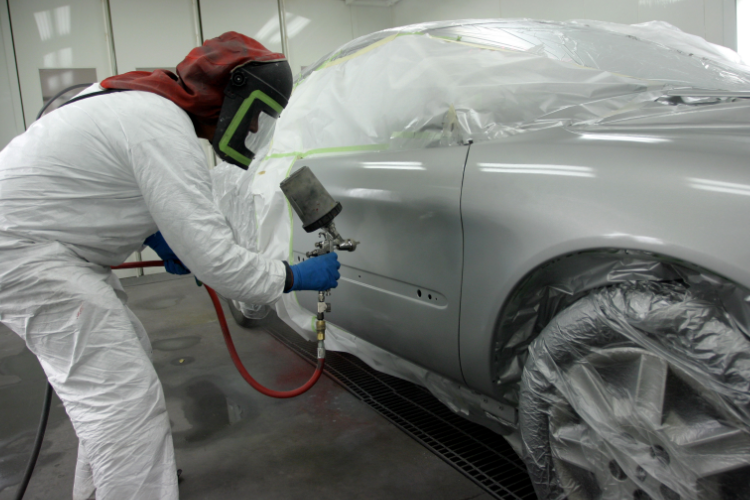
Before selling or listing your vehicle, you can often increase its resale value with simple updates that include:
- Fix minor cosmetic issues like scratches or dents
- Get a professional detailing to refresh the interior
- Replace worn tires or brake pads
- Stay on top of oil changes and routine maintenance
- Keep all service records organized
- Avoid aftermarket modifications that reduce buyer appeal
- Repair warning lights or dashboard alerts
Even small improvements can help your listing stand out in competitive markets.
Bottom Line
Understanding how to find the value of a car helps you negotiate confidently whether you are selling your car privately, trading it in, or listing it on an online marketplace. Once you understand the factors that determine your vehicle’s value you will be better prepared to negotiate, compare offers, and choose whether selling, trading, or shipping makes the most sense.
Sherpa Auto Transport also offers resources to make the entire journey easier, from choosing the best place to sell a car online to learning how to buy a car online safely or even how long it takes to ship a car if you are purchasing out of state. When you are ready to move your vehicle, Sherpa’s Price Lock Promise ensures you know exactly what you’ll pay, no surprise fees, which makes the process as smooth as possible.
Car Worth Estimate FAQ
How does insurance assess the value of a totaled car?
Insurers typically use actual cash value (ACV), based on pre-accident market prices, mileage, and condition, referencing valuation tools like KBB or NADA.
Can you get a higher value for your car in a different state?
Yes. Market demand varies by region. Some states pay more for trucks, hybrids, or AWD vehicles. You can ship your car using Sherpa to access better-paying markets.
What is the Black Book value of a car?
Black Book value reflects wholesale pricing that is used by dealers, auctions, and lenders. It is often lower than retail but useful for trade-in comparisons.
Sources
- Consumer Affairs – Used Car Statistics 2025
- Investopedia – Just What Factors Into The Value Of Your Used Car?
- NADA – Consumer Vehicle Values
- J.D. Power – Best Car Ratings of 2025
- Imports of Fort Collins – Mileage vs Age Which Matters More in a Used Car

